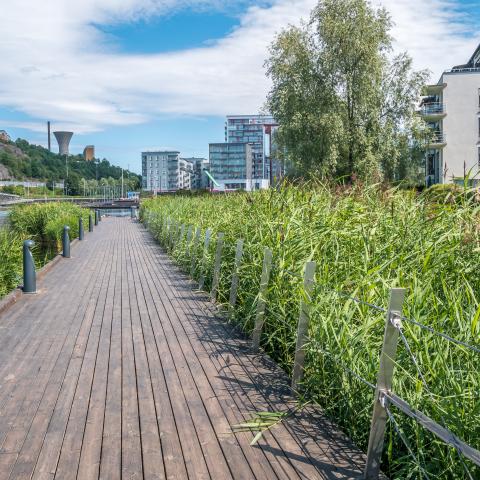This series of five reports presents promising pathways for mainstreaming nature-based solutions to address: climate change; biodiversity; economic regeneration; social inclusion and the sustainable development goals agenda. Each report asks: how can the mainstreaming of nature-based solutions be supported through this agenda? And what in turn can working with nature-based solutions do to ensure that sustainability challenges are mainstreamed at the urban level? We find a variety of complimentary pathways that can help to foster more sustainable cities for the future.

Mainstreaming Nature-Based Solutions: Biodiversity
Nature-based solutions contribute to responding to biodiversity challenges through conserving nature, restoring nature, and mobilising people’s ability to thrive with nature. In the meantime, urban policies and strategies that aim to address biodiversity loss also hold great potential to drive the wider application of nature-based solutions.

Mainstreaming Nature-Based Solutions: Climate Change
Nature-based solutions are increasingly integrated in urban development practices. They can help to effectively address the climate crisis. These natural climate solutions in cities can both reduce the impacts of climate change (adaptation) and reduce greenhouse gas emissions (mitigation).

Mainstreaming Nature-Based Solutions: Economic Regeneration
Nature-based solutions are able to encourage economic regeneration through improving economic vitality and providing attractive places to live and work.

Mainstreaming Nature-Based Solutions: Sustainable Development Goals
This report presents insights on how nature-based solutions can contribute to achieving the Sustainable Development Goals, defined in the 2030 Agenda, and recommends several pathways for doing so.

Mainstreaming Nature-Based Solutions: Social Inclusion
Greater understanding of social inclusion is vital to decision making about mainstreaming nature-based solutions. Social inclusion in this context means understanding how vulnerable, marginalised and under-represented voices are included (rather than excluded) in processes and practices to mainstream nature-based solutions.
